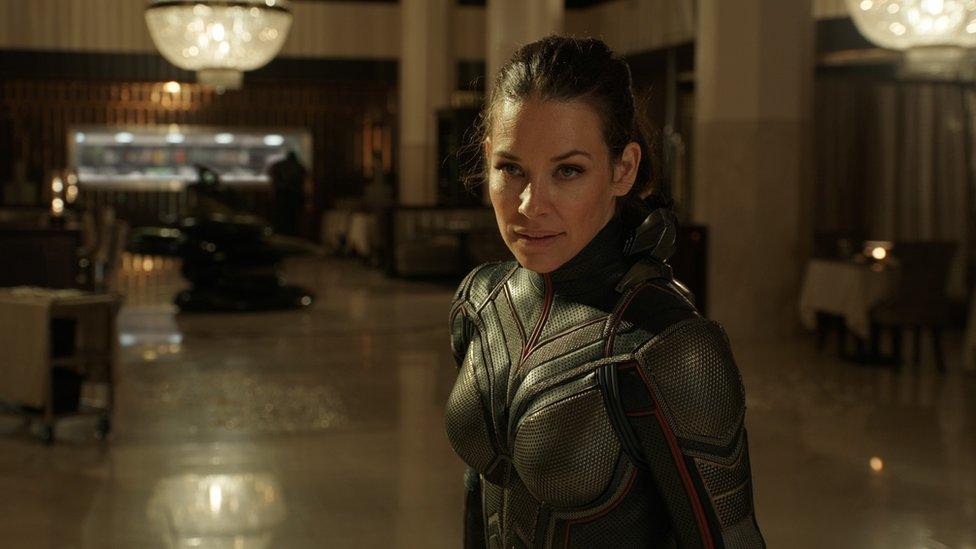Toxic fandom: Online bullying in the name of your favourite stars
- Published
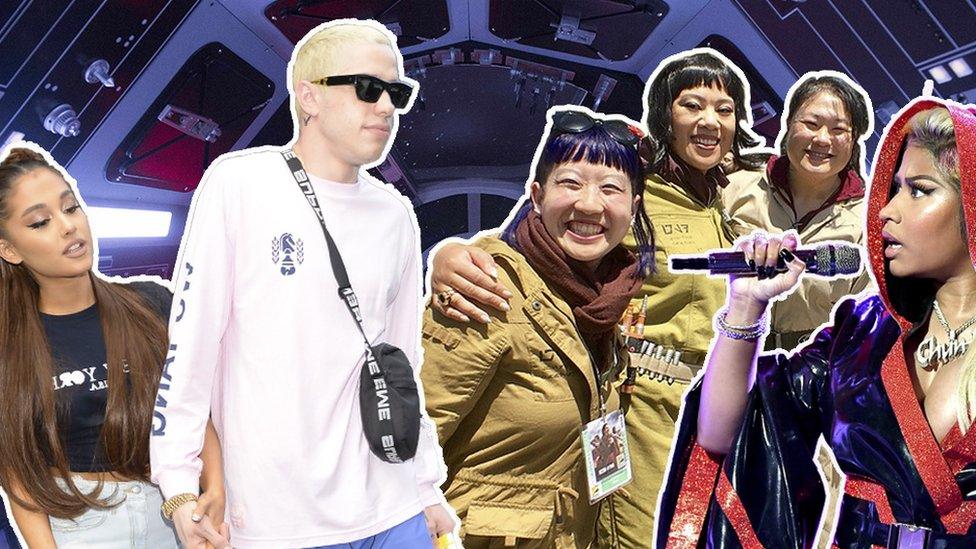
Pete Davidson, the Saturday Night Live comedian engaged to Ariana Grande, recently quit Instagram.
"The internet is an evil place and it doesn't make me feel good," he wrote in his Insta Story as he left the app.
Ariana said she was planning to do the same, external, tweeting that negativity online can really "bum you out".
Pete had been targeted by some of the singer's most hardcore fans for writing "what a cutie" on a photo of Ari and her granddad.
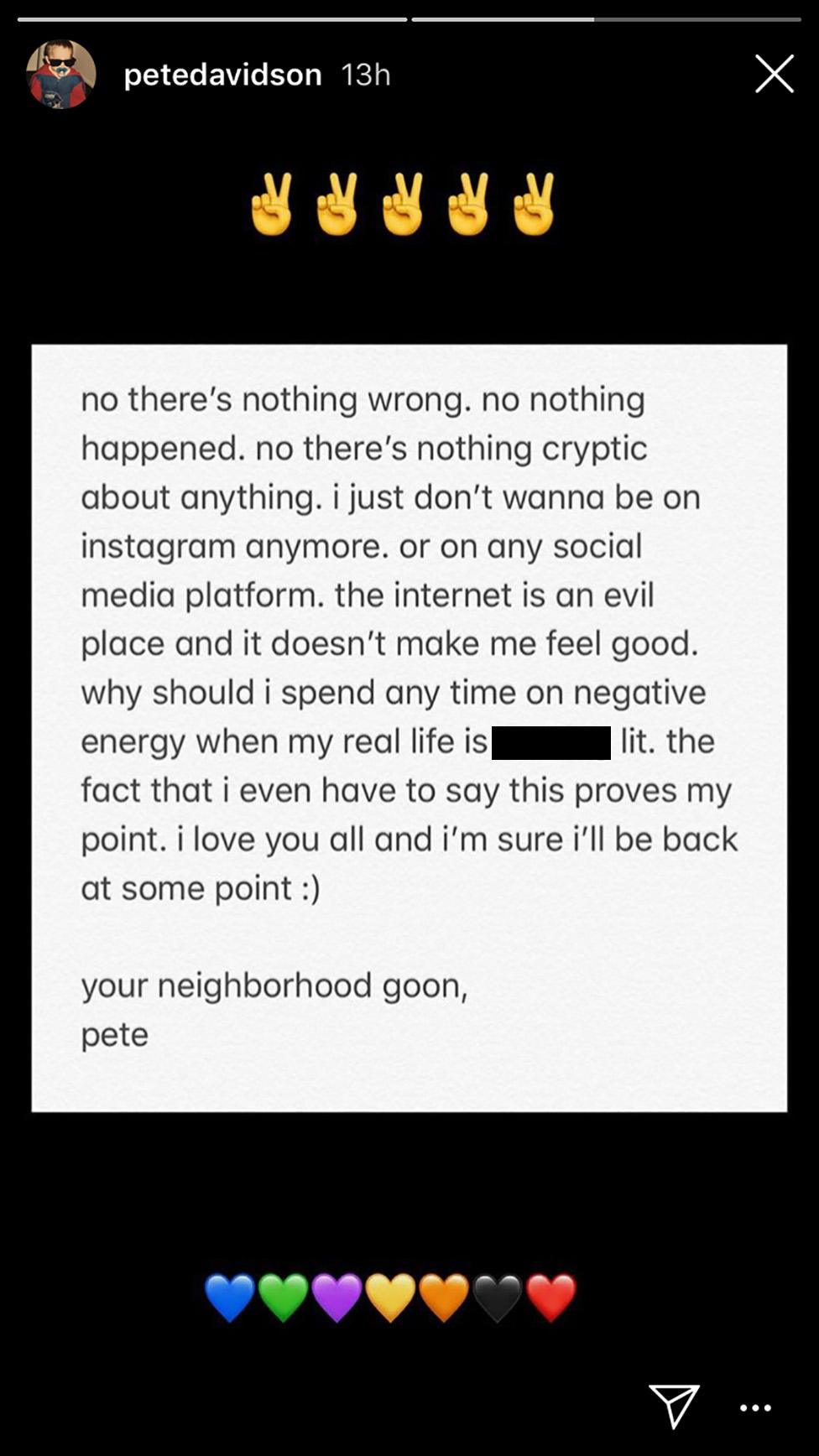
Pete signed off from Instagram with this message about social media

It wasn't the first time he had come under attack from Ariana's fans - known as Arianators - since the two started dating in May of this year.
And it's definitely not the only example of fans turning toxic online.
Canadian writer Wanna Thompson learned this the hard way when she, a Nicki Minaj fan, posted mild criticism of the rapper on her Twitter account.
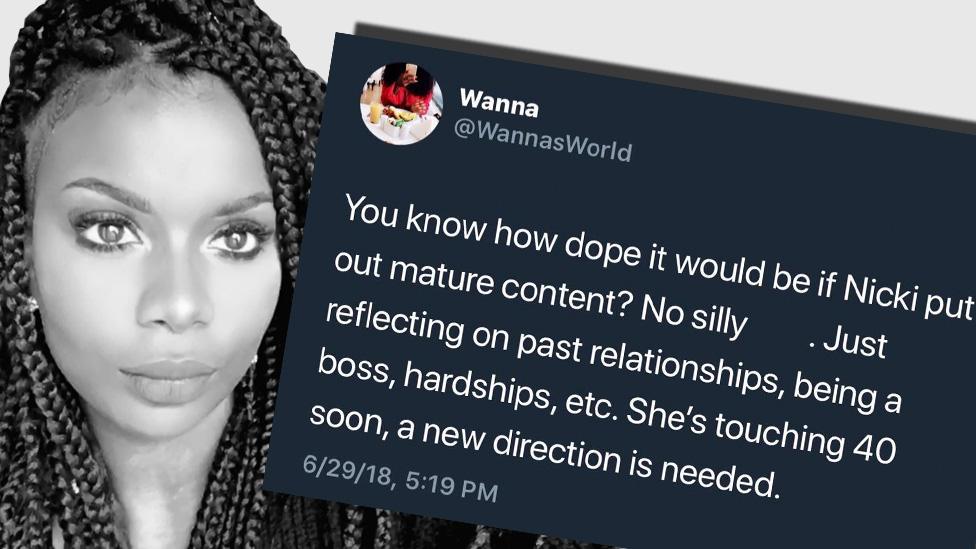
Wanna Thompson was abused by Nicki Minaj's #Barbz after saying the rapper should write more mature lyrics
"They were calling me all types of graphic language," Wanna tells Newsbeat.
"They found pictures of my daughter and they were attacking her appearance. She's only four years old. That got to me the most."
Even Nicki herself seemingly got involved, addressing Wanna, external in a direct message on Twitter, saying Wanna was jealous she was "rich, famous, intelligent".
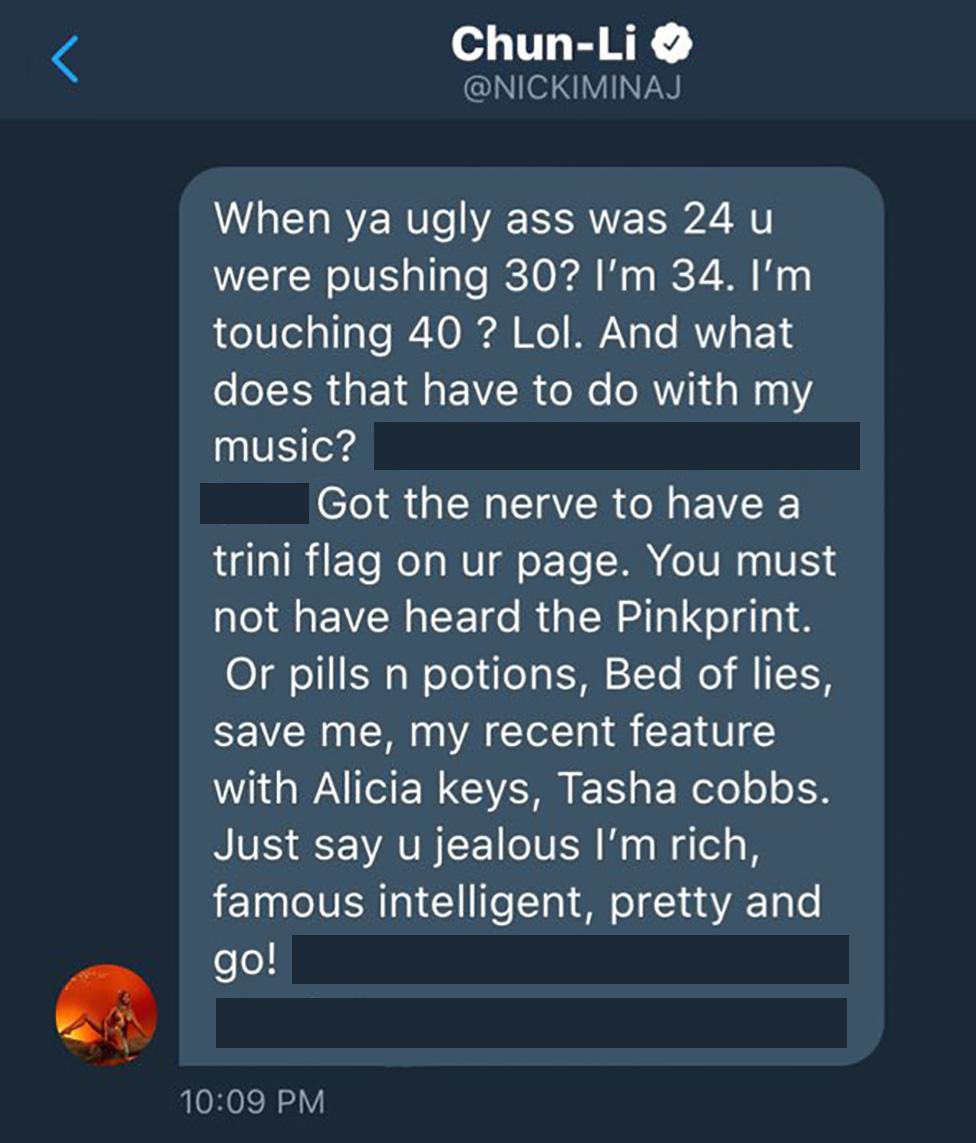
Wanna shared a screengrab of direct messages which appear to have been sent by Nicki Minaj
The stress of what she was seeing on social media and in her emails tipped over into her offline life and she says she was unable to focus on things like reading, writing or exercise.
Newsbeat has contacted Nicki Minaj's record label for response.
'I'm strong, but what if I wasn't?'
Wanna believes she has a "social responsibility" to talk about the damage toxic fandoms can cause.
"I pride myself on being a really strong person but what if I wasn't?" she says.
"If this was happening to someone who is suicidal or harms themselves, that could lead to something very dangerous."
'Get a life, nerds'
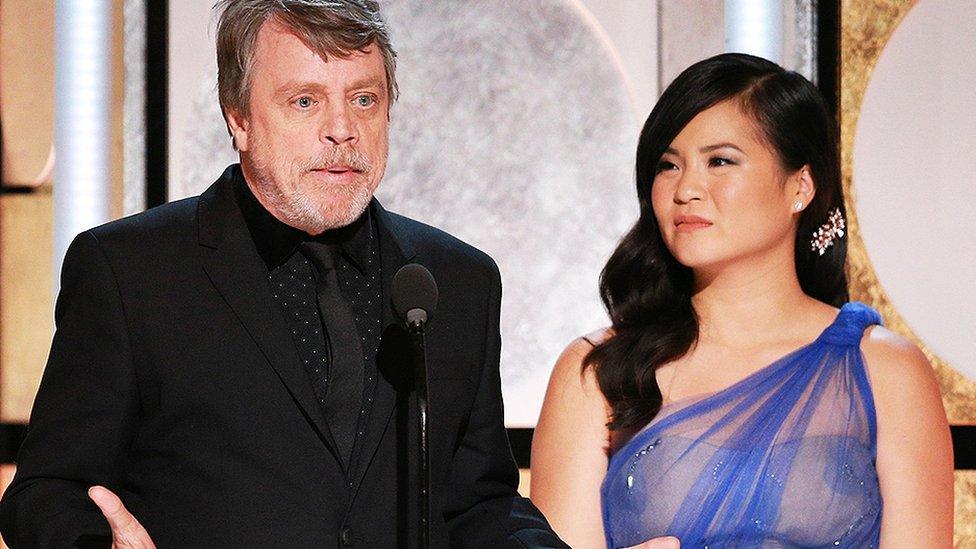
Kelly Marie Tran quit social media after racist comments were made on her Instagram account
It's not just young fans of pop stars who take things to extremes in the name of fandom online. Middle-aged men can do it too.
In June, actress Kelly Marie Tran felt the full force of 41 years of the Star Wars franchise when she was hounded off social media following racist comments about her role as Rose Tico in 2017 movie The Last Jedi.
Luke Skywalker actor Mark Hamill responded, telling "nerds" on social media to "get a life, external".
The Last Jedi director Rian Johnson tackled fans directly online, external in defence of Kelly.
And at San Diego Comic-Con in July this year, a group of Asian females dressed as Rose to show their support for Kelly.
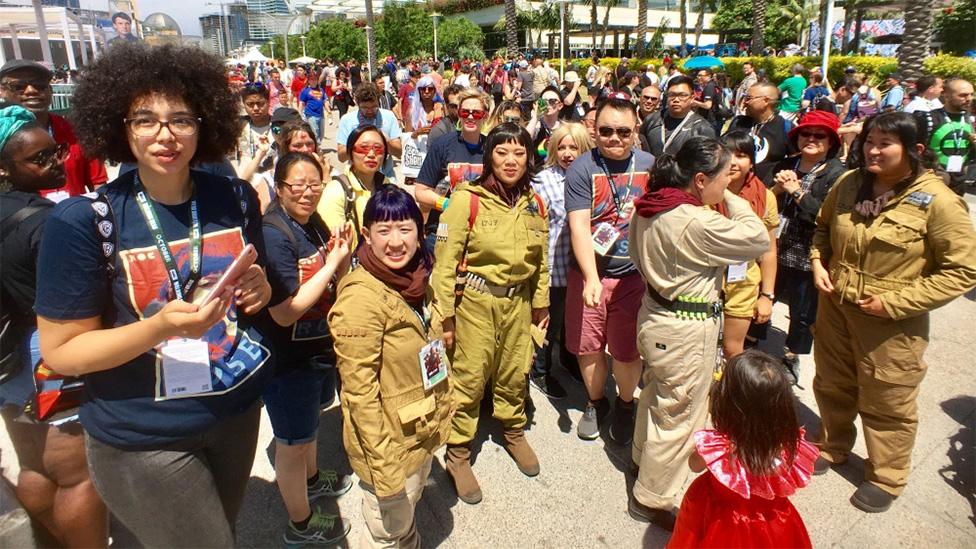
A group of Asian Star Wars fans dressed as Rose Tico at Comic-Con in San Diego in support of Rose Marie Tran
"Kelly became the target of a lot of the fanboys who had issues with The Last Jedi, whether justified or not. But her harassment was never justified," Keith Chow, who co-ordinated the costumes, tells Newsbeat.
For Keith, an Asian American like Kelly, having Rose Tico as a prominent character in a major franchise was a "phenomenal" moment for diversity.
But he believes it was the diversity which made Kelly a target for hardcore fans.
"It's one thing to be critical of a character for narrative purposes. It's another thing to take those perceived narrative issues and assign race and gender to it," he says.
"Your opinion of a movie should not make you want to bully someone online. Simple as that."

What's being done behind the scenes?
Olivia Edwards-Allen, 24, helps a range of "mainstream pop" artists manage their social media accounts for a major record label in the UK.
She says that social media has changed the way people connect with their favourite celebrities and some believe that there's a mutual relationship there.
"There are so many ways to get in contact and so many more ways to find out what they like," she says.
"That leads to people thinking they know them, and if you think you know someone you think you know how they would expect you to act."
Wanna Thompson says that when fans turn on an individual, the celebrity involved has a responsibility to step in.
"I believe if you're seeing something go overboard, you should step in and say 'Hey, that's enough'," she says.
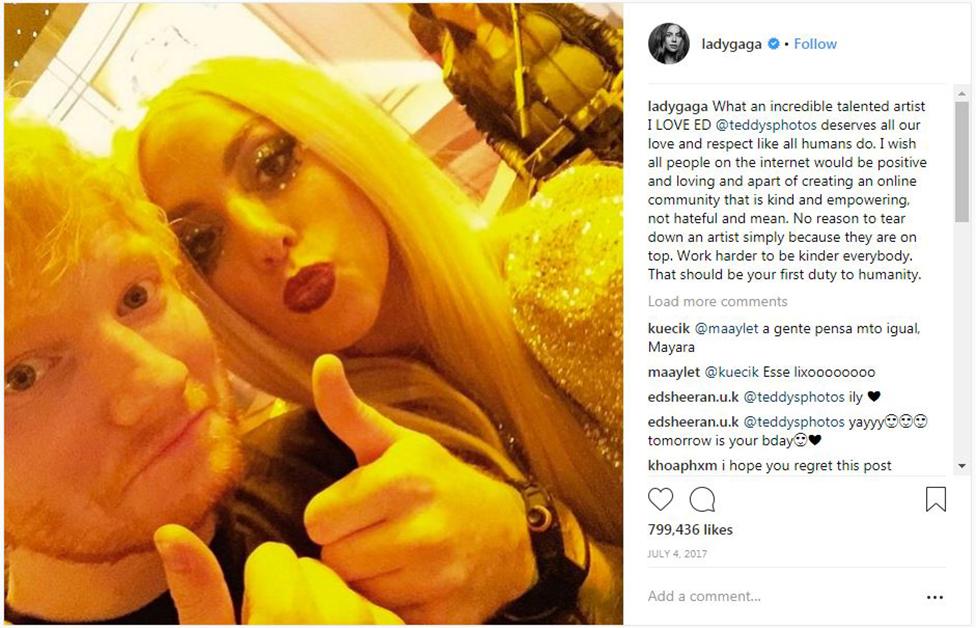
In 2017, Lady Gaga encouraged her fans to "be kinder" online after they attacked Ed Sheeran
Olivia says this is something that people like her work on behind the scenes.
"It is something we all watch for and it is something we're concerned about happening," she says.
"It's just a massive epidemic on social media at the moment and there can be big consequences from something so small."

Any fandom can turn
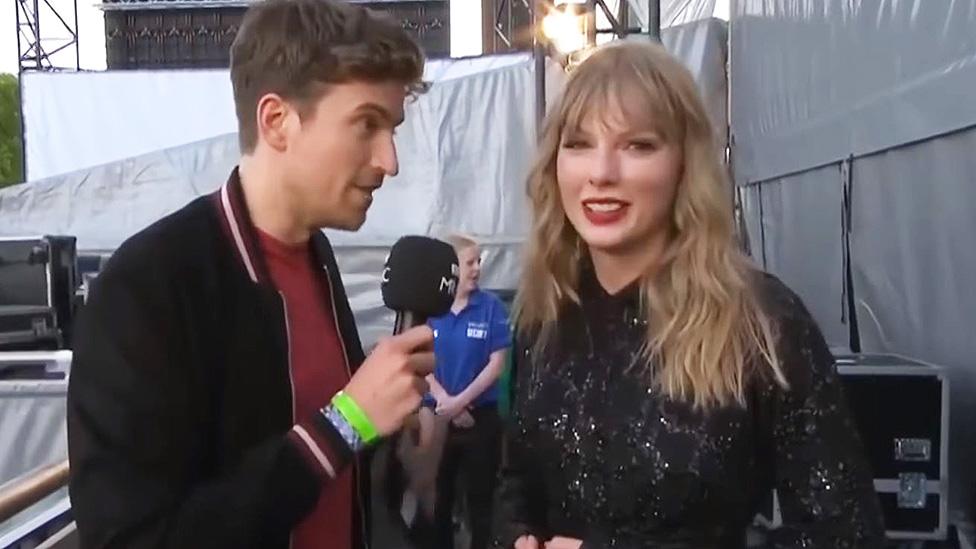
Greg James fell victim to the Swifties earlier this year
Fans of DC Comics recently showed their ugly side when they harassed actress Anna Diop because of her skin colour, after the first trailer for new TV show Titans was revealed.
Rick and Morty fans took their trolling offline when they harassed McDonalds' staff and customers following a promotional stunt.
In the gaming community, women face abuse from "angry men, trolls, racists and misogynists", external, which is something Newsbeat looked into in 2016.
Even Radio 1's Greg James came under fire from Taylor Swift fans, external when he recommended she "take a shower" after a performance at Radio 1's Biggest Weekend earlier this year.
Could social media platforms do more to help?
Twitter says it doesn't tolerate "hateful behaviour" and Instagram says it is "never OK" to attack someone on the basis of their race, ethnicity, sexuality or gender.
But these are the platforms where most abuse takes place.
Areeq Chowdhury, who works for a think tank called Webroots Democracy believes "pseudo-nimity", like you find on Facebook business pages, could help on these platforms.
Pseudo-nimity would mean anyone using social media providing proof of who they are, even if they go on to be anonymous on their profile.
"What that might do is dis-incentivise people to behave in a way they just wouldn't in real life," he says.
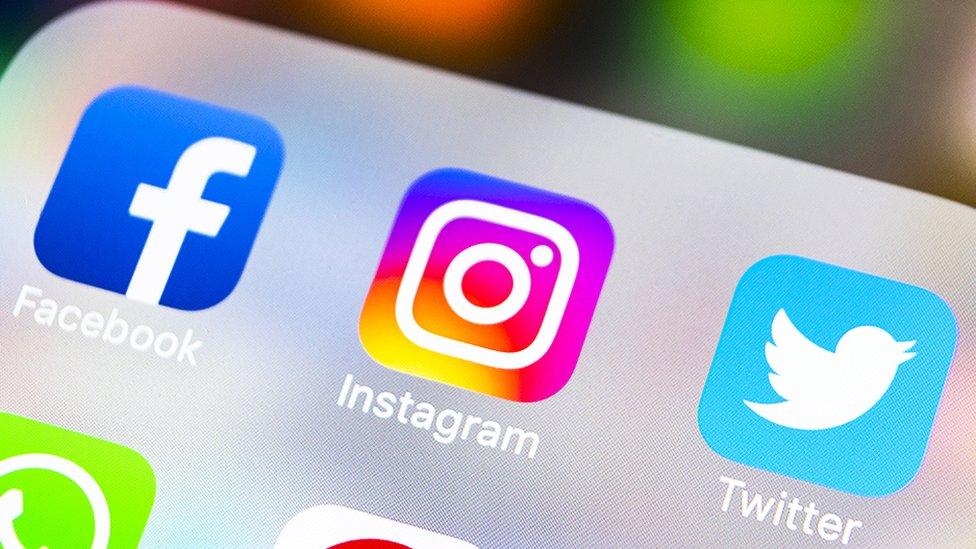
Social media platforms all have methods to tackle bullying but often they can only be implemented after an incident
Areeq says actions like muting or blocking conversations on Twitter is fine, but doesn't really tackle the problem.
"That's all retrospective actions. There's not anything that's preventative."
But ultimately, as Olivia believes, the responsibility is on the people posting abuse as much as the social media platforms.
"Everyone should be held responsible for the things they do," she says.
"If you couldn't say it to somebody just walking down the street, then why can you say it online?"
Follow Newsbeat on Instagram, external, Facebook, external and Twitter, external.
Listen to Newsbeat live at 12:45 and 17:45 every weekday on BBC Radio 1 and 1Xtra - if you miss us you can listen back here.
- Published21 October 2017

- Published21 May 2018
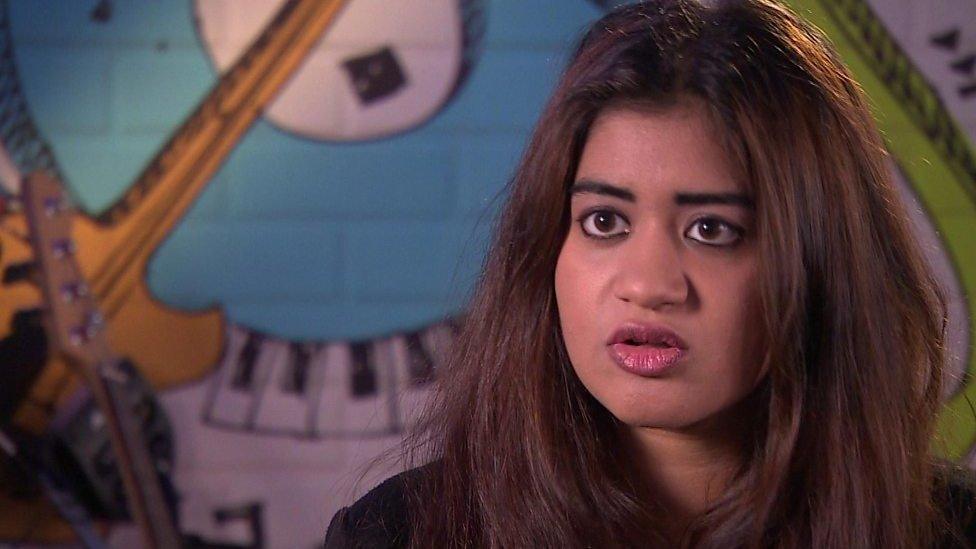
- Published6 July 2018
